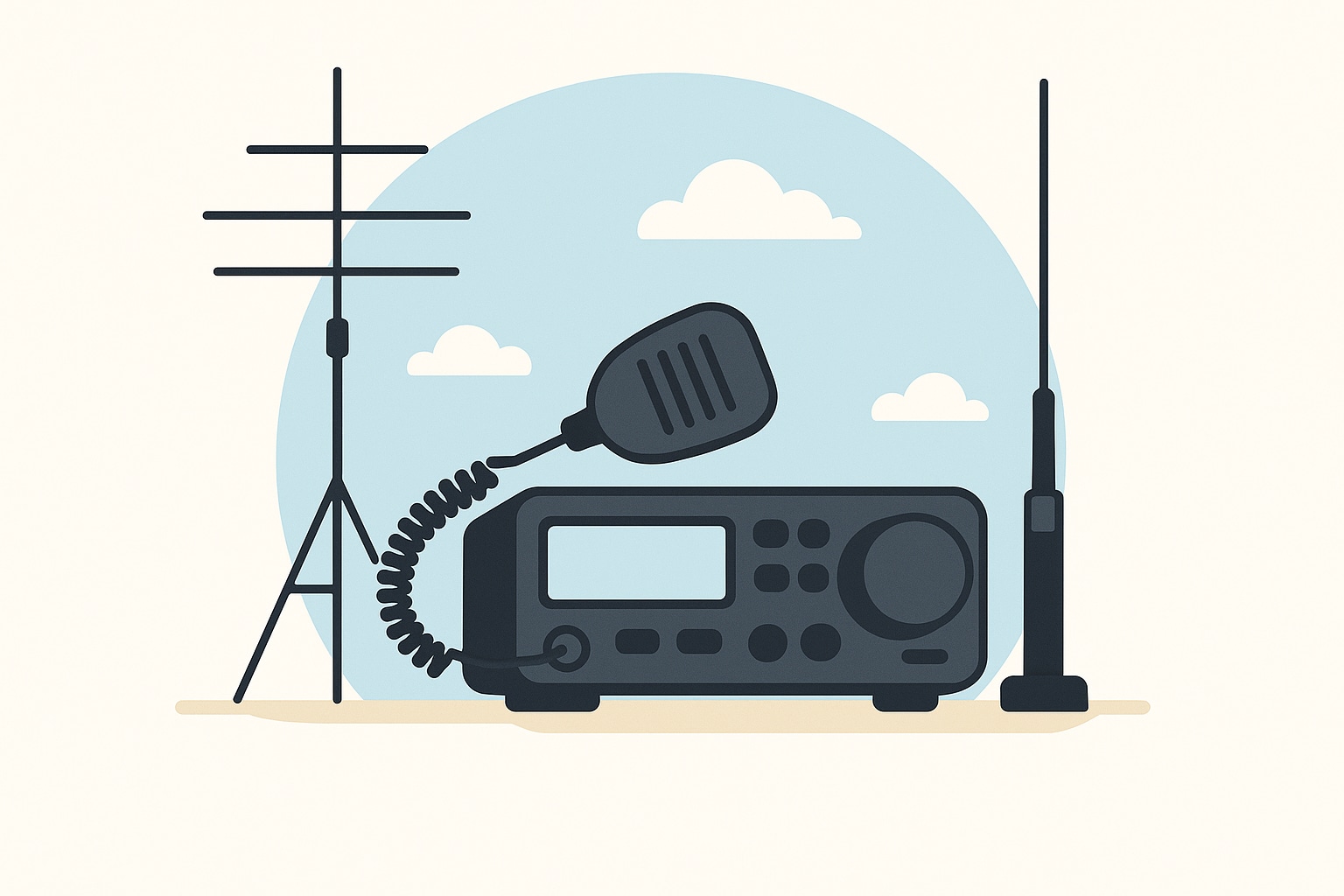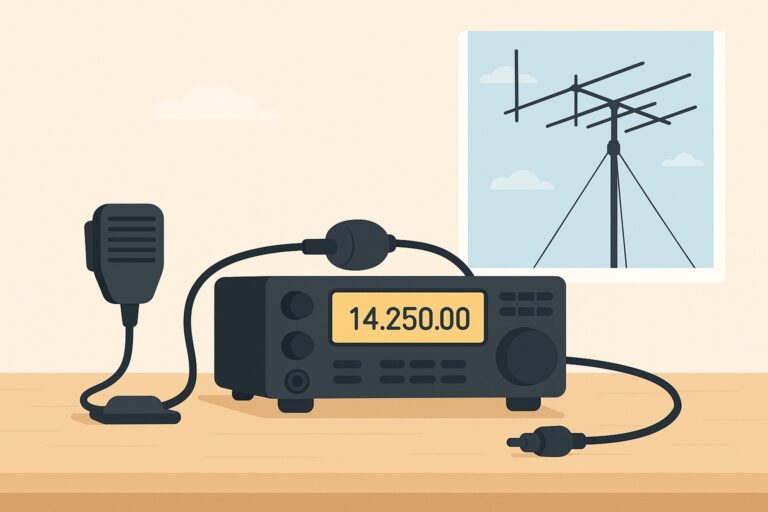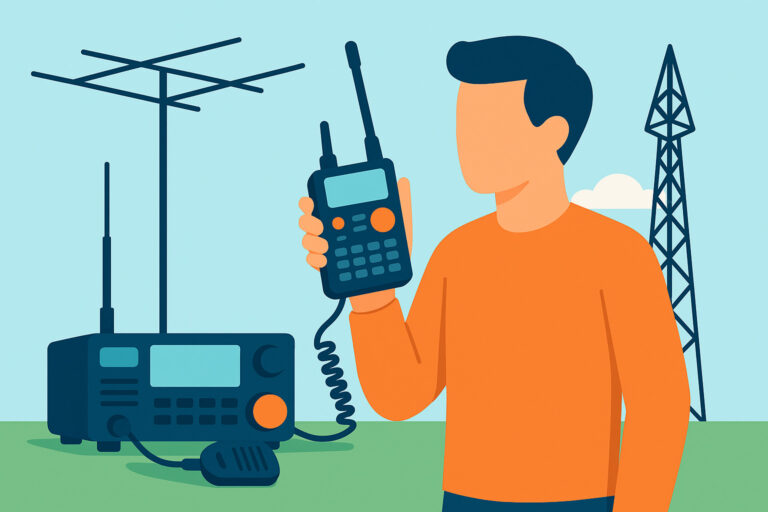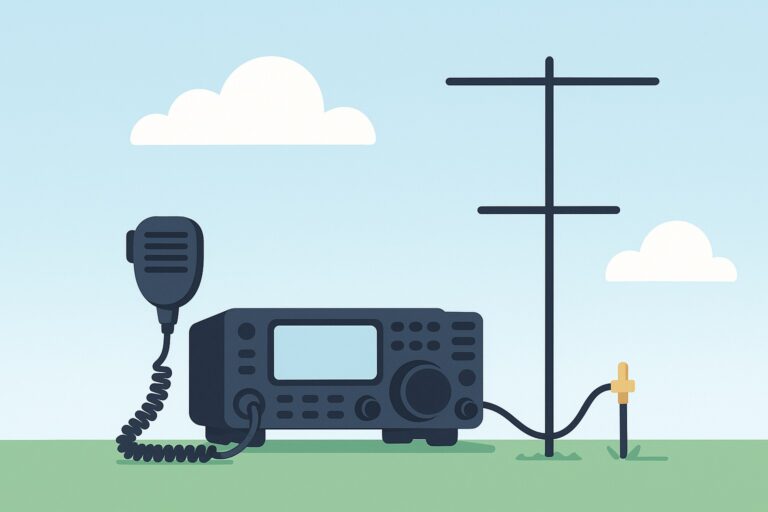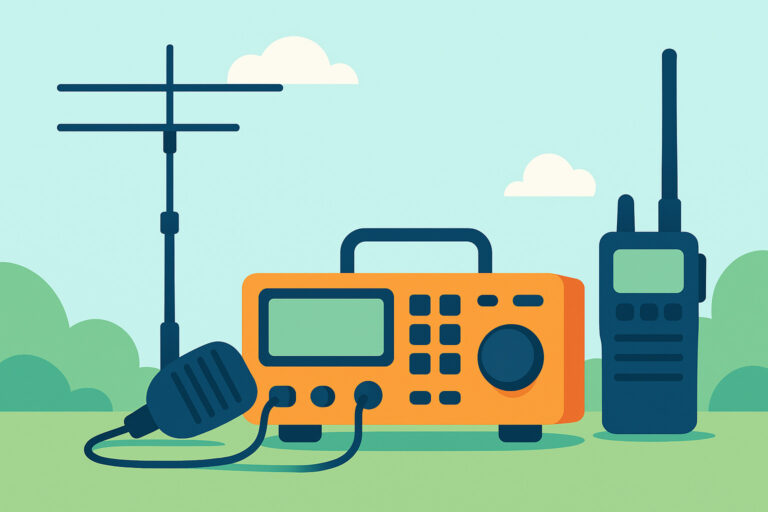The Benefits of Joining a Ham Radio Club
Joining a ham radio club is one of the most rewarding steps an amateur radio operator can take. Not only does it open doors to a wealth of information and resources, but it also connects you with a passionate community that shares your interest in radio communications. Whether you’re interested in learning new technical skills, participating in exciting events, or simply meeting like-minded individuals, ham radio clubs provide a welcoming environment for growth and exploration. Let’s explore the many benefits that come with being part of a ham radio club.
The Benefits of Joining a Ham Radio Club
Introduction to Ham Radio Clubs
Ham radio clubs are organizations dedicated to the support, advancement, and enjoyment of amateur radio. These clubs range from small, informal groups to large, structured associations with hundreds of members. What unites them is a shared passion for radio communication and a commitment to helping each other learn and grow in the hobby.
Most ham radio clubs welcome both seasoned operators and newcomers. They often host regular meetings, training sessions, and social activities that provide members with opportunities to interact and collaborate. Clubs are usually affiliated with national or regional amateur radio organizations, which helps ensure access to up-to-date information and resources.
For anyone seeking to expand their horizons in amateur radio, joining a club offers a structured pathway to develop technical skills, find mentors, and become part of a vibrant, supportive network. The camaraderie and sense of belonging fostered by these clubs make them an essential aspect of the ham radio experience.
Skill Development and Knowledge Sharing
One of the primary advantages of joining a ham radio club is the opportunity for ongoing skill development. Clubs regularly organize educational sessions, workshops, and presentations on a wide range of topics, from antenna design to digital modes. These learning opportunities are invaluable for both beginners and experienced operators who want to stay current with the latest technology and best practices.
Mentorship is another key element of club membership. Experienced members are often eager to help newcomers study for their license exams, troubleshoot equipment, or master advanced operating techniques. This collaborative environment accelerates learning and makes it easier to overcome technical challenges.
Knowledge sharing isn’t limited to formal sessions. Informal discussions, club newsletters, and email groups provide continuous access to advice and insights from peers. Whether you’re tackling a tricky technical problem or looking for guidance on operating etiquette, you’ll find answers within your club community.
Clubs also foster a culture of experimentation and innovation. Members often work together on projects such as building custom antennas, setting up portable stations, or exploring new digital communication modes. This spirit of collective exploration not only enhances individual skills but also advances the hobby as a whole.
Community and Networking Opportunities
Ham radio is as much about people as it is about technology. Clubs serve as hubs for social interaction and networking, bringing together individuals from diverse backgrounds who share a common interest. This sense of community is often cited as one of the most rewarding aspects of club membership.
Regular meetings and events provide a friendly environment to make new friends, exchange ideas, and collaborate on projects. Many operators form lasting relationships within their clubs, finding mentors, collaborators, and even lifelong friends. The shared experience of working together on club activities builds strong bonds and a sense of belonging.
Networking within the amateur radio community can also open doors to professional opportunities. Many members work in fields related to electronics, engineering, emergency services, and IT. By participating in club activities, you may discover new career paths, gain valuable contacts, or even find job opportunities through word of mouth.
This loyalty and long-term involvement are reflected in the broader amateur radio community as well: “The AAVSO 2011 Demographic and Background Survey found that participants tend to be loyal, with the average time of involvement in the AAVSO reported as 14 years.“
Access to Resources and Equipment
Ham radio clubs often maintain a collection of resources that are available to members, making it easier and more affordable to enjoy the hobby. These resources may include shared radio equipment, antennas, test gear, and tools that might be too costly or impractical for individuals to purchase on their own.
Club stations are a particularly valuable asset. These shared operating facilities are typically equipped with high-quality transceivers, amplifiers, and antennas, giving members the chance to operate with equipment they may not have at home. Club stations are also an excellent place to try out new modes or bands, and to learn from others in a hands-on environment.
Some clubs even offer lending libraries of books, magazines, and manuals covering all aspects of amateur radio. This makes it easier for members to access up-to-date technical information, licensing materials, and reference guides.
In addition to physical resources, clubs often provide access to group buying opportunities, discounts, and special deals from vendors. By pooling their purchasing power, members can save money on equipment and supplies.
In times of need, clubs can secure funding to improve their resources for the benefit of the community. For example, “The Ak-Sar-Ben Amateur Radio Club received a $10,000 grant from the City of Omaha to outfit a communications room with amateur radio equipment after the 1975 tornado.“
Participation in Events and Competitions
Ham radio clubs are active organizers and participants in a variety of events and competitions. These range from local field days and public demonstrations to international contests and special operating events. Taking part in these activities is both fun and educational, providing a chance to put your skills into practice and learn from others.
Club-sponsored events often include:
- Field Days: Emergency preparedness exercises where operators set up stations outdoors and make as many contacts as possible.
- Contests: Competitive events that challenge operators to contact stations in different regions or using specific modes.
- Workshops and Demonstrations: Opportunities to showcase amateur radio to the public or learn about new technologies.
Participating in these events helps build teamwork, improves operating skills, and raises awareness of amateur radio within the broader community. It’s also a great way to earn awards, recognition, and, most importantly, have fun with fellow enthusiasts.
Emergency Communication and Public Service
One of the most important roles ham radio clubs play is supporting emergency communication and public service. Amateur radio operators are often called upon to provide vital communications during disasters and public events when regular systems fail or become overloaded.
Many clubs maintain relationships with local emergency management agencies, hospitals, and public safety organizations. They train members in emergency protocols, participate in drills, and help coordinate response efforts when needed. This service to the community not only enhances public safety but also demonstrates the value of amateur radio to the broader public.
Ham radio clubs also support various community events, such as marathons, parades, and charity walks, by providing reliable communications and logistical support. This involvement fosters a sense of civic responsibility and pride among members.
Conclusion
Joining a ham radio club is a gateway to a richer, more rewarding amateur radio experience. From skill development and resource sharing to building friendships and serving the community, the benefits are numerous and far-reaching. Clubs provide the support, knowledge, and camaraderie that make the hobby more enjoyable and meaningful. If you’re ready to take your passion for amateur radio to the next level, connect with a local club or visit https://hamradioplayground.com for more information and resources. The adventure awaits!

